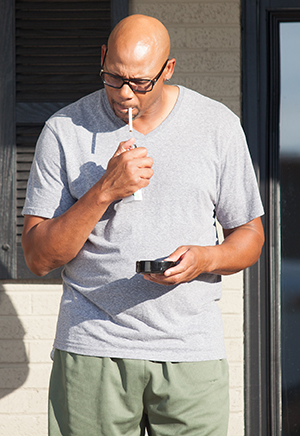Cancer of Unknown Primary: Risk Factors
Cancer of Unknown Primary: Risk Factors
 What is a risk factor?
What is a risk factor?
A risk factor is anything that may increase your chance of having a disease. Risk factors for a certain type of cancer might include smoking, diet, family history, or many other things. The exact cause of someone’s cancer may not be known. But risk factors can make it more likely for a person to have cancer.
Things you should know about risk factors for cancer:
Risk factors can increase a person's risk, but they do not necessarily cause the disease.
Some people with 1 or more risk factors never develop cancer. Other people can develop cancer and have no risk factors.
Some risk factors are very well known. But there is ongoing research about risk factors for many types of cancer.
Some risk factors, such as family history, may not be in your control. But others may be things like diet, sun exposure, and tobacco use which you can change. Knowing cancer risk factors can help you make choices that might lower your overall cancer risk.
Who is at risk for cancer of unknown primary?
Because healthcare providers don’t know the why, how, or where of cancer of unknown primary origin (CUP), it’s hard to identify risk factors for it.
Experts do know, however, that smoking is a risk factor for many kinds of cancer that could lead to CUP.
Certain foods have been linked to cancers of the stomach, colon, or rectum. These are all possible sources of CUP.
Melanoma, a type of skin cancer, is another source of CUP.
Also, a certain family cancer history may also be considered a risk factor. If more than one close relative, such as a grandparent, parent, or sibling, has been diagnosed with colorectal, ovarian, or breast cancer, you may have a higher risk of cancer. If you have a relative who has or had CUP, your risk for it is higher. Having a relative with CUP also increases your risk for lung, colon, and pancreatic cancers.
Following these tips can lower your risk for cancer, including CUP:
Don’t smoke. If you smoke, get help to quit.
Eat more fruits and vegetables
Get regular exercise
Use sunscreen
What are your risk factors?
Talk with your healthcare provider about your cancer risk factors. He or she can tell you how to lower your risk.
Updated:
November 14, 2017
Sources:
Familial Risk in Patients With Carcinoma of Unknown Primary, Journal of the American Medical Association
Reviewed By:
Gersten, Todd, MD,Image reviewed by StayWell art team.,Stump-Sutliff, Kim, RN, MSN, AOCNS